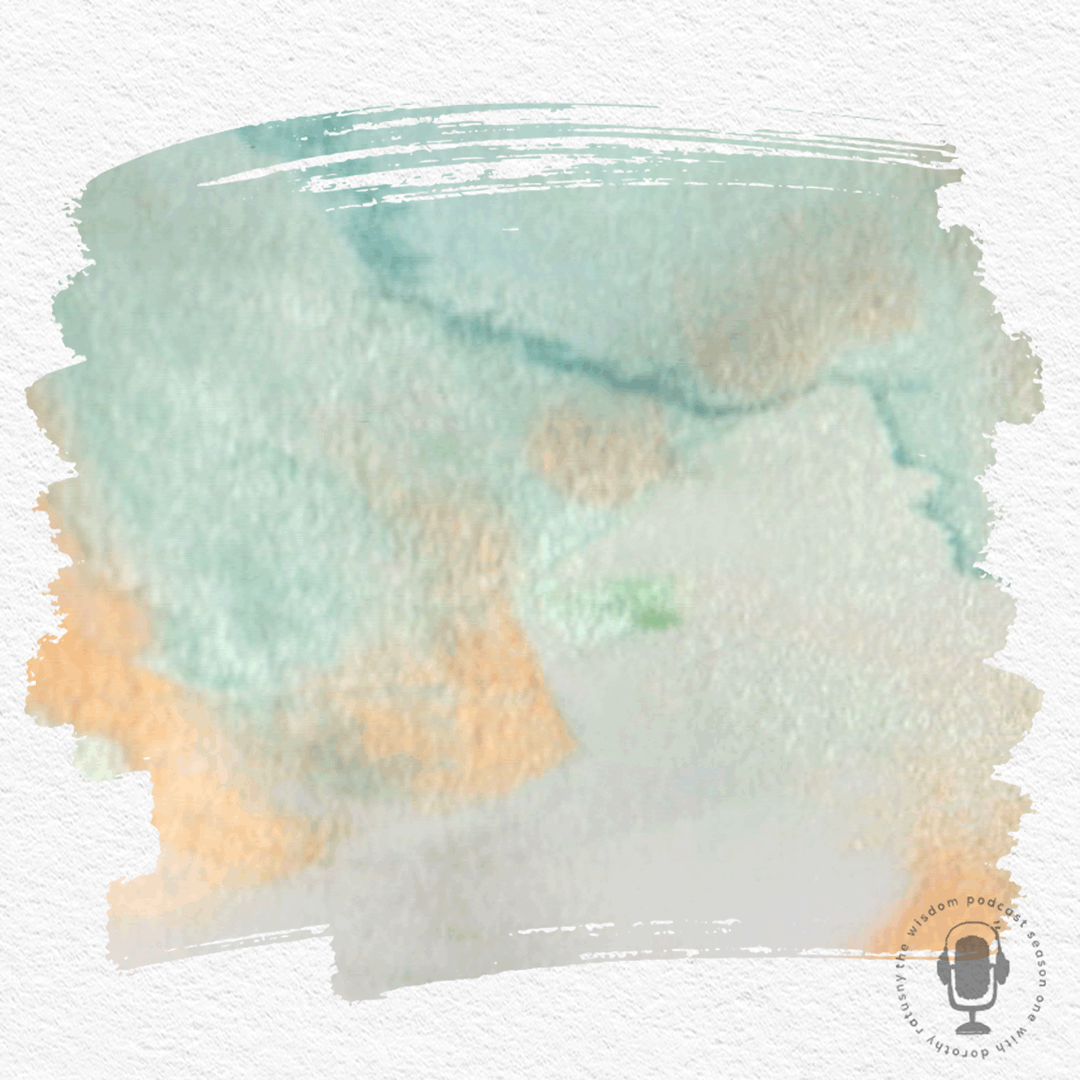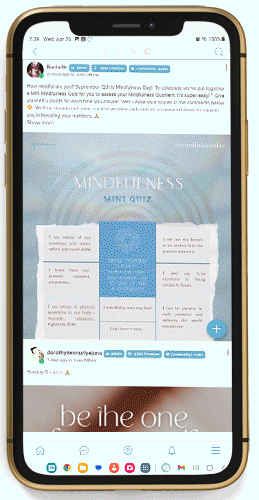The 7 Pillars to Complete Forgiveness and The Art of Forgiveness
The WISDOM podcast Season 1 Episode 12
with Dorothy Ratusny
TIMESTAMPS:
Podcast Intro: 0-2:09 | How Forgiveness is Possible: 2:13 | Two Questions to Contemplate: 4:26 | The First Sacred Step to Forgiving: 5:49 | How you Know Forgiveness Has Been Completed: 11:06 | How to Use A Mantra to Be Free from the Past 13:32 | Why We Need to Forgive: 14:12 | The First Pillar: Let Go of Your Expectations Of What Others “Should be”: 15:52 | The Second Pillar: Practice Compassion: 18:36 | The Third Pillar: Uphold Loving Kindness: 21:01 | The Fourth Pillar: Be Responsible for Your Happiness: 22:15 | The Fifth Pillar of Forgiveness: Practice Holding Gratitude: 24:19 | The Sixth Pillar of Forgiveness: Remind Yourself of What Is True: 26:53 | The Seventh Pillar of Forgiveness: Speak Your Truth: 29:20 | One of the Most Helpful Life Rules for Forgiveness 32:11 | The Episode ‘Afterward’: 33:10 | Your Free Downloadable Offering for This Episode: 38:51 | Podcast Outro: 40:32
![]()
Forgiveness is possible as you love yourself and others, unconditionally. When you choose to forgive another or yourself, it is because you wish to let go of suffering; to free yourself to live in the present; and to dream of the future because you have completed the work of ‘for‘ ‘giving‘, for releasing your attachment to the past. The past was never in your control. If you are forgiving another, it is so that you can have a relationship with them in the present if you so choose. In this episode, we discuss what it means to forgive; how you know that you have forgiven completely; and how you can do this so that you are no longer carrying the weight of the past with you.
TRUTH SERUM: A new way of thinking about forgiveness that transcends all world religions and is the most direct path to inner peace: Forgiveness comes from Love.
To forgive, first decide to accept; to make peace with whatever has happened by acknowledging that the past is unchangeable. Then you can begin to hold compassion and love towards the person (and yourself) in the present. Your love directed towards another or unto yourself is the most powerful tool for forgiveness.
A-HA MOMENTS: Forgiveness is: (Hint: break it into two words) forgiving yourself the freedom to let go of the past and whatever has happened including what you or others have done that is not a true portrayal of who you are. Forgiveness is ‘for”giving’ acceptance to what has already happened; and what you have no power to change, only the power to live from the present moment.
PRACTICAL WISDOM: You will know when forgiveness has been completed because you will be able to think about the other person, yourself, or the situation and no longer feel the hurt, anger, (or self-loathing) that was once present. You will instead feel an ease and lightness in your heart centre, and you will be able to identify the feeling of unconditional love and acceptance that comes about from making peace with what ‘is’.
“It is your actions and mindset of the present, that allow you to make peace with your past.”
What do you need to forgive? (What actions, words, or thoughts?)
Who do you need to forgive? (Including yourself.)
If you want to forgive, its likely because you want to free yourself from a situation in which you are harbouring feelings of hurt, anger, or another form of suffering. Forgiveness is: (Hint: break it into two words) for giving yourself the freedom to let go of the past and whatever has happened including what you or others have done that is not a true portrayal of who you are. Forgiveness is ‘for’ ‘giving’ acceptance to what has already happened; and what you have no power to change, only the power to live from the present moment. Are you ready to experience the release of your hurt and suffering? Have you been telling yourself that you have forgiven another (or yourself) because you very much want to, but in thinking about past situations, do you still feel all of these same hurts, sadness, or anger. Do you know that you can forgive completely?
So let’s begin with a new way of thinking about forgiveness that transcends all world religions and is the most direct path to inner peace.
Forgiveness comes from Love
“Love for another, or yourself needs to come first; in place of what hurt, anger, blame, and suffering you have been holding onto. When you choose to forgive, it requires your willingness to make peace with what has happened. If you hold onto hurts and situations in which you have been wronged, it will seem impossible to forgive a person or their actions, or both. To forgive, first decide to accept; to make peace with whatever has happened by acknowledging that the past is unchangeable. Then you can begin to hold compassion and love towards the person (and yourself) in the present. Your love directed towards another or unto yourself is the most powerful tool for forgiveness.” -Dorothy Ratusny
When you can hold acceptance of what has happened in the past, you make peace with this reality. Once this happens, your focus can be on healing. In accepting what can never be changed you are free to take conscious steps now to release sadness, remorse, guilt, anger, and any other feelings by first acknowledging their presence. In this approach, you do not need someone to apologize for their inappropriate or wrongful actions. This is most helpful when someone is unwilling to acknowledge their wrongdoing. When you can say to yourself: “This happened; but I no longer want to feel angry, sad, betrayed, hurt, or any other painful emotion”, then you have made the choice to forgive; to come to peace with what has already happened. You – through the art of allowing it to be – of accepting its history (rather than attempting to wilfully change whatever has already happened or wish that it had not happened, is how you absolve any feelings and thoughts about what is past).
Forgiveness is ‘giving up’ the suffering that exists when you hold onto past situations and experiences and whatever is not in the present moment. Choose forgiveness above anything else. Let your desire for feeling peace, and for accepting what already is, be what gives you objective and the ability to be ‘here and now’; your life is no longer lived in the re-experiencing of past hurts and wounds.
Forgiveness allows for the release of what causes you to suffer. This includes any of the self-inflicted hurt that you have been carrying, because of your decision (whether consciously or unconsciously) to continue re-living the unpleasant thoughts and feelings of that situation as you maintain blame directed towards another (or yourself). It is unlikely that the other person is even aware of the extent of damage or hurt that they have caused. It is not up to another person to make you feel better.
Even with an heartfelt apology, you can still harbour negativity and hurt feelings. So it becomes a decision; your decision to release the past through acceptance and the willingness to live life in the present and to do what is going to be most helpful for you to feel happiness and whole. Consider if you have been unable to forgive what has happened; such as a car accident, or an injury or illness, and you continue to point blame or fault for the situation. This will inhibit your ability to physically, emotionally, and mentally heal; to recover fully; and to feel at peace. Remember that your power lies in your ability to live of the present moment; to act and react based on your present moment experiences including what you will remind yourself of that is not within your control, nor ability to change.
“It is your actions and mindset of the present, that allow you to make peace with your past.” – Dorothy Ratusny
Forgiveness may take months, or even years to complete; based on the depth of your hurt and how long you have carried this suffering, giving it your (unwanted) attention and energy. Think of it as similar to layers that you shed, each layer is what you have constructed to armour you; to protect you from feeling hurt or angry even though these layers have not been needed. Instead, you have simply needed to refrain from holding onto and reliving what is past.
You will know when forgiveness has been completed because you will be able to think about the other person, yourself, or the situation and no longer feel the hurt, anger, (or self-loathing) that was once present. You will instead feel an ease and lightness in your heart centre, and you will be able to identify the feeling of unconditional love and acceptance that comes about from making peace with what ‘is’.
In your willingness to forgive, you experience a relief in the painful feelings; as you do the important ‘work’ of releasing; “shedding” these hurts; and in examining what hopeful or unrealistic expectations you may have held towards another or yourself that has caused you to remain in the place of ‘victim’. A victim consciousness is your need to be justified in your suffering. A victim mentality only keeps you focused on what real and perceived harm has been done to you. You can’t move beyond this until you are willing to make peace with what is unchangeable. This is acceptance – pure and simple. You do not have to like or be happy about what has happened, but you do need to find a space in which you can accept the past as what has already occurred and focus your energy on what will bring you relief and a feeling of empowerment that comes with the absence of suffering. When you choose forgiveness, you choose to let go of the need to make someone or an event or situation responsible for how you feel. Until you feel forgiveness completely, please continue to find more of what you need to “let go”; and to shed. Hint: You can release whatever still remains with intentional choice. It is a choice to free yourself of whatever suffering you have been experiencing. Use a mantra to remind yourself of you decision to be free from a past situation and the feelings you hold of it. Think: “I have forgiven this past situation or person.” and “I am free of the past and I am at peace.”
Complete forgiveness is…. the release of your suffering and blame, in place of holding peace; and for ‘for’ ‘giving’ thanks for your ability to do so.
Here’s Why You Need to Forgive:
When you feel consumed by hurt, sadness, anger, or any other difficult emotion whenever you think about a situation, an exchange of words, the absence (or presence) of an action, or any other condition that did not meet your expectations, you suffer. Each time you think about the situation or the other person, you relive the same feelings – usually as intense as they were originally. Your belief that you have been wronged and that you are justified for feeling the way you do keeps you in a cycle of suffering.
You choose forgiveness because you no longer wish to relieve the past. You recognize that it is far better for you to feel at peace with a situation, yourself, or another, rather than continue to harbour damaging and unresolved feelings, because these feelings left unhealed continue to cause discomfort.
The 7 Pillars of Forgiveness describe the steps that lead you from what you feel now, into peace, acceptance and a new reality of truth that is comforting. Each pillar is also a best practice that makes it easier for you to walk through life without forming hurts and for holding grudges.
The 7 Pillars of Forgiveness
This is how you allow for complete forgiveness.
These 7 Pillars of Forgiveness are to be used at any time in which you want to forgive and may be struggling with how to do this. These 7 Pillars are also a model for how to live life. Employing each of these 7 pillars minimizes the need for forgiveness because you have a different approach; one of fairness, compassion and acceptance and love of other beings as an extension of you.
- Let Go of Your Expectations Of What Others “Should be”. With expectations whether unspoken or shared, you are holding others to act and think in ways that you approve of. When others are not able to do this, it leads to disappointment, frustration, annoyance and dishonesty in your relationships. Forgiveness may mean that you now have clear and distinct boundaries with others. If you can meet others where they are; to accept them as they are without needing them to change or adapt to what you want of them; then you are free to have a relationship with someone because of who they are. This means that you accept others even as they are different from you (aside from the fundamental ways in which others must be respectful, kind and of honour. Practice accepting others as they are; and allow them be who they are. In so doing, you can appreciate others because of who you are in this moment. *This may be one of the most challenging aspects for us to consider about how we are with others; that we must allow them to be as they are. From here we can choose to be in a relationship with another based on who they are – or not. While you cannot control how others treat you, you can (and must) use your voice to convey healthy boundaries and your needs of the relationship. Hold to this pillar as you honour yourself; even if it means moving away from others (with space, time, or physical distance) if they are not able or willing to respect and uphold what you need in order to have a healthy relationship. This practice reminds you that if someone is not behaving (nor choosing to behave) in a way that is kind and loving, you have the free will choice to absolve the relationship; to step away for a time, or permanently (not because you necessarily want to but) because the other person is not able to be fundamentally respectful, kind, and appropriate with you.
- Practice compassion. You can forgive when you hold compassion for another. It will be difficult to feel compassion if you are still seething with anger or resentment for whatever has happened. Compassion is sympathy and concern for the suffering or misfortune of others. This is a word for a very positive emotion that has to do with being thoughtful and considerate. When you hold compassion, seeing the other person as they are; with their own set of vulnerabilities, limitations, and likely suffering in some capacity themselves, you begin to hold them in a different light; your perspective softens and you are able to be understanding and to learn of their particular situation or circumstance. Compassion and understanding are not meant to justify or condone someone’s behaviour, but rather it gives you insight into the situation, and the plight of others who may not have the resources and capabilities that you have. In the same way that you can acknowledge your own wrongdoing and feel self-compassion and remorse, you can acknowledge that another person is likely not intentionally seeking to be hurtful. (In some cases where there is actual proof that an action of intentional harm was directed at you, you can still choose forgiveness; forgiveness of the situation, forgiveness for what was done, and forgiveness through acceptance that what has happened, is also of the past and that you can thrive in the present moment, no longer perpetuating your suffering by continuing to re-live the past). Compassion is for acknowledging that others are not always able to be at their best. We must allow for our humanness at times.
- Uphold loving kindness. Loving-kindness, or metta, as it in called in the Pali language, is unconditional, inclusive love, a love with wisdom. This type of love has no conditions; it does not depend on whether one “deserves” it or not; it is not restricted to friends and family; it extends out from personal categories to include all living beings. There are no expectations of anything in return. This is the ideal, pure love, which everyone has in potential. Notice how fostering love and kindness perpetuates the same in return. When you observe others as they are, and even as you may disagree with what you witness; you can still be kind and respectful as you voice your opinion, your needs and what healthy boundaries you have in place. Kindness does not mean that you agree with another; what it shows is that you can honour another living being even when you do not approve of their actions and words. You may uphold loving kindness most easily as you look for and find the good in another. Each one of us has good; we all have the ability to be of our goodness. It is a choice. Choose to focus on the good of others so that you can more easily be kind and respectful at all times. Kindness is how you show love to all living beings.
- Be responsible for your happiness. Remind yourself of what you need to do to feel better (to be at peace, to feel happy, calm, soothed, or any other feeling that you wish to feel). Only you can be responsible for how you feel; which is important because it also means that you can choose happiness in all moments. Taking control of how you feel is liberating. Practice this in moments when you might be inclined to blame others or situations as the cause of your suffering. Be sure to give yourself what you identify that you need in order to feel better, and to release; ‘to let go of’ what has been causing your suffering. For example, you can remind yourself, “Yes, she (or) he did (or) said that, but I no longer want to feel sad (angry, hurt, etc) because of it. This is what I need to do to feel happiness.” Rely on your inner wisdom in these moments for guidance, and then honour (through action) what you need to feel happiness in place of suffering.
 “Happiness of the present moment does not change what has already happened, but it is a powerful reminder that you do not have to live in the past when happiness is possible in the present moment.”
“Happiness of the present moment does not change what has already happened, but it is a powerful reminder that you do not have to live in the past when happiness is possible in the present moment.” - Practice holding gratitude for what you have learned from this situation; for how this will empower you in future; and for what ‘life lessons‘ you are being shown and taught through the practice of forgiveness. A big step towards your ability to forgive is to say, “Thank you!” inwardly (or aloud) as a reminder to yourself of how this experience is causing your expansion; your growth and what you have learned. This will help you to release hurt and suffering. Gratitude acknowledges your ability to rise up; to heal yourself; to choose how you will empower yourself regardless of what has happened. Be patient of yourself with this as a process. You may forgive someone for a past wrong doing only to discover more hurt and angry feelings have now surfaced for you because of other actions that you have now remembered (or of which they may continue in). Hold gratitude for choosing to let go of the past; of accepting the past as unchangeable and of learning and trusting in what you now know to be true. Acceptance of the past helps free you to live awakened to your life in the present moment. To hold gratitude means that you have to allowed your perspective of something to change; this is how you become enlightened. You form a different attitude and a higher perspective of what is important. Gratitude for something good that comes out of a situation, to recognize and appreciate your emotional strength, your resolve to heal yourself, or to forgive because of what cannot be changed are all reminders of your capacity for transformation; and of ‘re-birthing yourself as far more powerful than you have ever been – here and now.
- Acknowledge what is true. Rather than continue to dwell on what has happened, or your feelings about this, challenge yourself to re-examine the situation from the perspective of your highest self. See if you can bring greater accuracy and clarity to what has happened rather than hold blame onto another or remain a victim. Hold compassion for yourself. What was done to you and what experiences were painful do not deter you from your highest potential for good and for living as the very best version of yourself. Forgiving what happened to you is often the first step to healing and a return to wholeness. If another person was involved and if you received deliberate harm, you can practice acceptance of this past situation as something that occurred, but you do not need to continue to relive it. Remember that forgiveness is acceptance of what has already happened, and not agreement nor approval. Write a list of factual truths based on your current life situation. Forgiveness is remembering the truth in the present moment rather than dwelling on the unjust that is forever in the past. Your ability to be of the present moment is what allows you to hold forgiveness for any (past) situation. As you deepen your resolve towards complete forgiveness, you may want to forgive the other person first; if you cannot yet forgive their actions. You can also use the other pillars to help you deepen your expression and desire for complete forgiveness; and to remember that the behaviour of another in a situation could never have occurred if they were living of their highest self in those moments.
- Speak your truth. There is power in honesty, in acknowledging what has happened, and in voicing your true thoughts and feelings. We often hold back from sharing our truth with others about how we feel; including our perceptions and for what may has ’caused’ us to feel anger or hurt. When you are seeking to forgive completely of a situation or another, it is imperative that you not keep your thoughts and feelings inside; withholding silences you and exacerbates your suffering. You might refrain from being honest and truthful if you tell yourself that you don’t know how to convey your thoughts or feelings without causing further tension, conflict, or distress to a relationship. Recognize that the other person may not agree with your truth; they may also continue in the same behaviour without heeding your words; and yes, in some cases they will be angered or upset with your honesty. However, if you use your voice in the way that I suggest here, it is far more likely that you will feel good about speaking your truth. If there is any discomfort to the other person, it will likely be minimal. Hint: Use “I felt” or “I feel” statements (such as, “I felt…. sad, hurt, disappointed, angry”, etc. ) and the words, “when ‘this’ happened“. (In some cases, it will be more appropriate to use the word “you” (for example, when you….) when you are speaking specifically to a behaviour that you wish to identify, while in other situations, in may be more effective to speak in neutral ways such as: when ‘this’ or when ‘these events’ happened.
Each one of us is meant to experience happiness, and not suffering. As you practice forgiveness, and the “letting go” of what you have been holding onto that has contributed to your hurt, anger, or sadness, you begin to realize how unnecessary it is to hold the negative feelings, resentment, and grudges that cause you to suffer.
One of the most helpful ‘life rules’ that you could ever live by is to accept others as they are; and without needing them to uphold your standards. You may be attentive, and to assess what you observe in others, and yet it is helpful to do so without criticism or judgment. You can always offer your help and guidance to another in a desire to help them improve their situation, together with healthy boundaries that reflect your understanding that it is always up to another how they will choose to be. This is one of the most effective life practices for having healthy, loving relationships.
Afterward:
Whenever you observe others with kindness and curiosity, you learn more about who they are. This is an effective life practice that allows us to be observers and to learn rather than critique and judge others based on their differences. Continue to remind yourself of what you are being shown and what you are learning through your desire for forgiveness and for alleviating suffering. If you can look at what “has happened to you” as an opportunity for learning something new about yourself and another, you are more likely to find relief in trusting the wisdom of life to reveal precisely what you need to understand and know in order to further your personal growth. Much of the inner work of forgiveness is inspired by a deeper (and instinctual desire) that we all have for feeling inner peace, for improving connection and closeness in our relationships, for no longer relying on others for feeling happy and having self-worth, and for ultimately becoming more. This is also known as individuation; the ability to be independent in relying on and providing for your needs, and to feel integral happiness and love for your self.
Most of all forgiveness allows you to experience the process of deliberate co-creation. When you seek out healing from a past situation with forgiveness, you are allowing the natural rhythm of life and the need for maintaining presence in this moment. When you allow for what ‘is‘ in the present moment, you can experience others and yourself as you are, rather than continuing to relive situations of the past. This allows you to make decisions based on what is important now; and for what you are in full control of. When you judge others or yourself based on a situation of the past, you are not truly in control of ‘now’. Let go of the impulse to judge based on a situation or a time of the past, in which you have no control, and which is not an accurate portrayal of who the person (or your self) is in that moment. Remind yourself of the need to live of the present moment; to view and make decisions based on what is important now. This will also help you to release grudges or hurts; to accept what you have no control over and cannot change. I believe this is a forward thinking concept which changes the way in which we think about our experiences and one that I hope you will find of much help.
Here is where mindfulness and conscious awareness become your helpful allies. When you allow yourself to exist in the present moment; as you witness situations, others, and yourself without needing to place any labels or judgment on what you experience, you are more easily able to approach all situations in life from a neutral position. When you hold grudges, resentment, and hurt, you are holding others responsible and as the cause for how you feel.
“When you choose forgiveness whether directed within or towards others, you heal yourself; your heart is able to be full with the expression and feeling of ‘unconditional’ love. This is how you know that forgiveness is complete.” – dorothy ratusny
I invite you to embrace and use all of the practical and spiritual wisdom offered here, for living the 7 pillars; for practising complete forgiveness so that you may feel at peace in your life. Please remember that forgiveness of many past hurts, and trauma occurs in stages, and as you seek to release in acceptance of all of what is in the past. I wanted to share a few resources for you as each offers further wisdom that may resonate differently with you; and to open you further for allowing complete forgiveness into your heart. And remember, forgiveness if ‘for’ ‘giving’ to yourself; for releasing your suffering first and foremost.
Episode Resources:
How To Curate Innate Happiness
Forgiveness… Begins with Your Heart Wide Open
To Work with Me: dorothyratusny.com
Sharing the wisdom and beauty of divine love with you…
Namaste!
Podcast Theme Music: ‘Aura’ from the Album, Illuvia by Eternell www.eternell.net/album/illuvia
Accompanying Music: Eternell, ‘Home’ from the Album – “Self”
A generous ‘thank you’ to Audio Engineer, Pavel Kirpikau for your incredible help!















Leave A Comment
You must be logged in to post a comment.